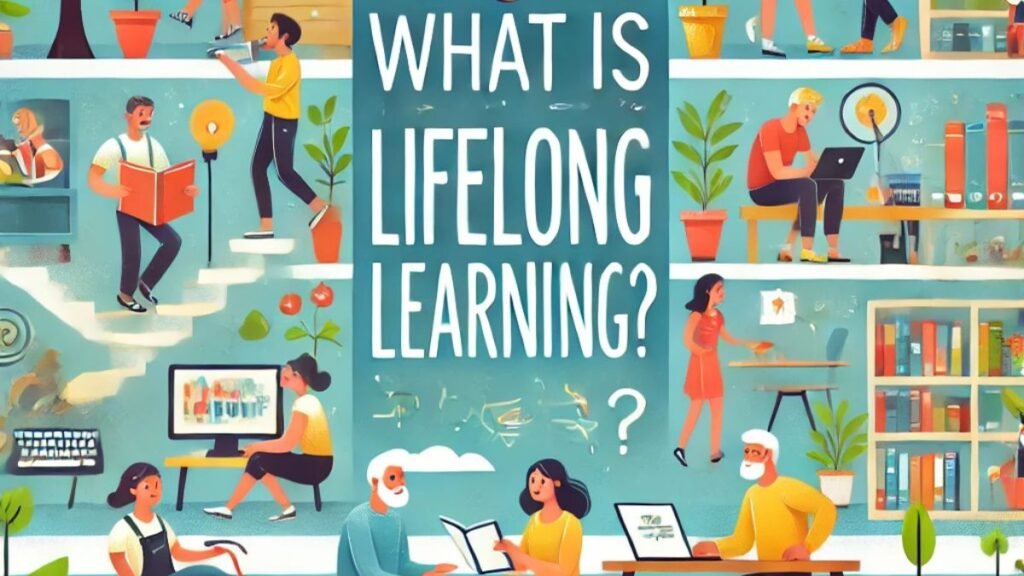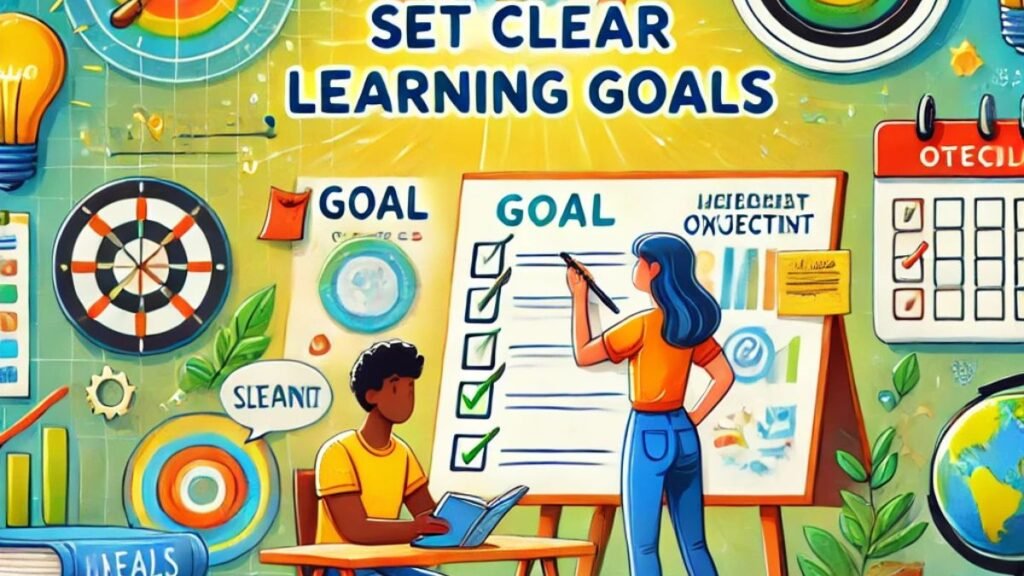In today’s rapidly evolving world, the idea of learning doesn’t end with formal education or even a specific career milestone. Lifelong learning is becoming an essential element of career development. For professionals, ongoing education is not just an option, but a necessity. In this blog post, we’ll explore the importance of lifelong learning, how it contributes to career development, and how you can integrate it into your professional life.
What is Lifelong Learning?
Lifelong learning is the ongoing, self-driven quest to gain knowledge that benefits both personal growth and professional advancement. It can take many forms: from formal education such as advanced degrees and certifications to informal methods like online courses, reading, or attending workshops. The goal is not just to gain new skills but also to keep up with the changing demands of your industry and remain competitive in the job market.
Lifelong learning is key to developing a professional education mindset. This is the understanding that education doesn’t stop at a certain age or stage in your career. It is an ongoing process that allows you to adapt, grow, and thrive in an ever-changing world.

Why Lifelong Learning Matters for Career Development
Today’s job market is tougher and more competitive than it has ever been.
With technological advancements, globalization, and shifting industries, professionals must continuously adapt to remain relevant. Here are some key reasons why lifelong learning is crucial for career development:
Staying Relevant in a Changing World: Industries are evolving rapidly, and new tools and technologies emerge regularly. Lifelong learning ensures you are up-to-date with the latest trends, making you more valuable to employers or clients.
Enhancing Professional Skills: Professional education allows you to acquire new skills and deepen your knowledge in your current field. Whether learning new software, mastering a leadership technique, or understanding a new business model, continuous learning helps you stay sharp and competitive.
Improving Career Opportunities: People who invest in lifelong learning tend to have more job opportunities, promotions, and pay raises. Employers seek individuals who can grow and develop, making lifelong learners attractive candidates.
Boosting Confidence and Job Satisfaction: Constant learning builds self-confidence. It gives you the tools you need to perform your job better, which leads to a higher sense of achievement and satisfaction. Gaining knowledge empowers you and naturally boosts your confidence.
Opening New Career Paths: Expanding your skill set increases the range of roles and industries you can move into. Lifelong learning can help you pivot into a new career direction or take on new responsibilities within your current job.
Adapting to Technological Changes: Technology is advancing at a rapid pace. By engaging in professional education, you can acquire the skills needed to work with new technologies. Whether it’s understanding AI, data analytics, or cloud computing, staying educated ensures you are not left behind.
How to Make Lifelong Learning Part of Your Career Development Strategy
Incorporating lifelong learning into your career development plan requires intentionality. Below are practical ways to build continuous learning into your routine:
-
Set Clear Learning Goals
Start by identifying what skills or knowledge you want to acquire. This will help you focus your efforts on areas that directly benefit your career development. Your goals should be specific, measurable, attainable, relevant, and time-bound (SMART). For example, if you want to learn a new language, set a goal to become conversational in it within six months.

-
Take Online Courses and Certifications
The internet is an incredible resource for professionals who want to learn new skills. Platforms like Coursera, Udemy, LinkedIn Learning, and Khan Academy offer a wide range of courses that cater to various industries and professions. You can take courses on business management, programming, marketing, data analysis, and more.
Completing professional certifications or online courses can enhance your qualifications and demonstrate your commitment to staying ahead in your career.
-
Read Regularly
Reading is one of the simplest and most effective ways to continue your education. Regular reading—whether books, articles, or journals—keeps you informed and exposes you to new ideas. Read industry-specific materials to stay on top of trends, or choose books that can improve your personal development or leadership skills.
-
Attend Conferences, Seminars, and Webinars
Attending industry-related events is a great way to learn directly from experts in your field. These events offer a mix of learning, networking, and growth. You can gain insights into emerging trends, learn new techniques, and meet people who can help further your career.
In today’s world, many of these events are virtual, making it even easier to access valuable learning experiences from the comfort of your home.
-
Join Professional Organizations
Professional organizations often provide members with access to workshops, webinars, and resources that are directly relevant to career growth. These groups often focus on continuing education and fostering professional development. Being part of such an organization not only helps with learning but also expands your network.
-
Seek Mentorship
Having a mentor can be one of the most valuable assets for advancing your career. Mentors possess a wealth of experience and insights that you can learn from. Regularly meeting with a mentor allows you to gain new insights, get career advice, and stay motivated to keep learning. They can also help guide you to additional educational resources.
-
Practice What You Learn
The best way to solidify new knowledge and skills is by applying them in your daily work. Whether it’s a new software program or leadership strategy, practicing what you learn in real-world scenarios will reinforce the concepts and help you build mastery over time.
-
Learn from Others
One of the best ways to continue learning is by learning from the people around you. Colleagues, industry peers, and even friends can offer valuable insights. Pay attention to their experiences and learn from their successes and mistakes. Collaboration and knowledge sharing are powerful tools for personal growth.
-
Engage in Self-Reflection
Reflecting on yourself allows you to evaluate your progress and pinpoint where you can improve. Take time regularly to reflect on what you’ve learned, how you’ve applied it, and how it has impacted your career. Doing this ensures you remain on the right path and make changes when necessary.
Where to Find Opportunities for Lifelong Learning
The abundance of resources available can make it difficult to decide where to begin. Here are some common places to find opportunities for ongoing education:
Online Learning Platforms: Websites like Coursera, edX, and LinkedIn Learning offer courses on almost any topic imaginable. Some are free, while others require payment. Many platforms even offer certifications that you can add to your professional resume.
Local Universities and Colleges: Many colleges offer part-time or evening courses for working professionals. These courses may also be available online, allowing for greater flexibility.
Professional Associations: Industry groups often host conferences, workshops, and webinars. Joining such groups provides you with access to tailored learning resources.
Books and Journals: Many professionals continue learning through books, audiobooks, and trade journals. Staying updated on your industry’s publications can help you keep pace with trends and new ideas.
Podcasts and YouTube Channels: Podcasts and video content offer free and accessible ways to stay educated. You can listen to podcasts on your commute or watch instructional videos at your convenience.
Key Takeaways
Lifelong learning is critical to career development. It helps you stay relevant, increases job opportunities, and boosts professional growth.
To make learning a consistent part of your career, set clear goals, take courses, read regularly, and engage with other professionals.
There are many avenues to continue learning, including online courses, seminars, books, and mentorship.
FAQs
- How do I find time for lifelong learning while working full-time?
Time management is key. Prioritize learning opportunities that fit your schedule, such as evening courses or shorter online modules. Divide your learning into smaller, easier-to-handle parts.
- Are there free resources available for lifelong learning?
Yes! Many online platforms offer free courses, and there is a wealth of books, podcasts, and YouTube channels that provide valuable insights at no cost.
- How can I measure my progress in lifelong learning?
Track your completed courses, certifications, and the new skills you’ve acquired. Also, assess how these learning experiences have improved your performance or opened new career opportunities.
- What if I am unsure about which skills to focus on?
Identify the key skills needed in your industry or seek advice from a mentor or career coach. They can help guide your learning efforts toward areas that will benefit your career.
Conclusion
Lifelong learning is no longer optional for career success. Embracing continuous education through professional development programs, courses, reading, and networking opens doors to new opportunities, helps you stay competitive, and ensures your career growth. By making learning an ongoing priority, you are setting yourself up for sustained professional success in an ever-changing world.
Invest in yourself, seek out learning opportunities, and never stop growing—your career will thank you for it.